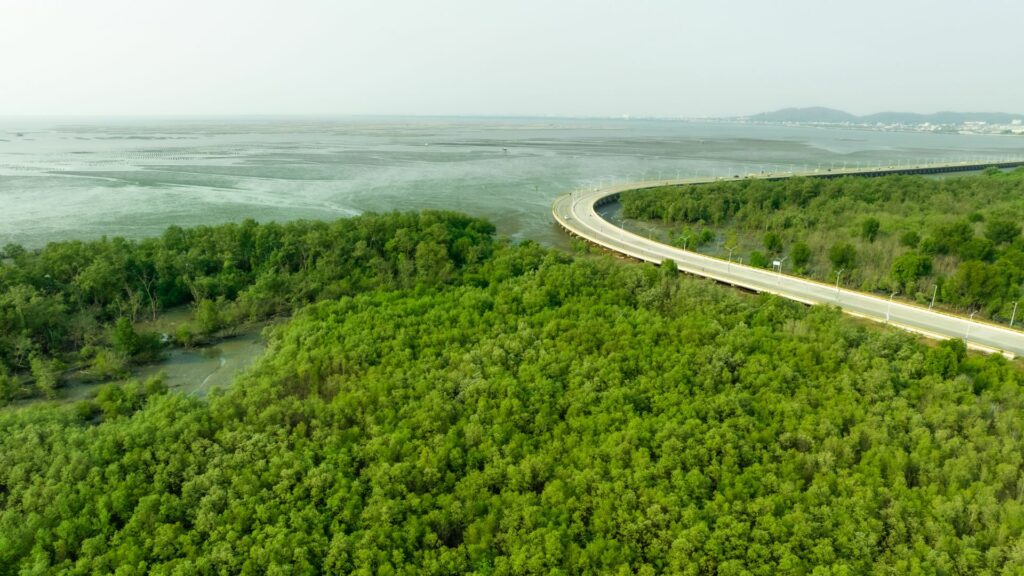Brazil is between the countries with the largest forest territorial extension in the world, since about 56% of the national territory corresponds to these areas and, therefore, it´s natural that it suffers national and international pressures to provide public and private investments for environmental preservation.
This context requires norms, laws and regulations appropriate to the ordering and control of the use and preservation of green areas, just as we see occurring in other countries around the world, whose reality of forest territory is similar.
With this critical context, and the global discussion around sustainability, and knowing the evolution of ESG (articles ESG – Socio-environmental responsibility in the construction of modern organizations – Studio Strategy (studioestrategia.com.br) and ESG AND THE CREATION OF VALUE TO THE BUSINESS – Studio Strategy (studioestrategia.com.br)), it´s reasonable to assume that there is an extensive range of laws, regulations and/or projects aimed at guiding and controlling the use of natural resources and the occupation of green areas, whether they are permanent preservation or not. It´s also believed, with the Brazilian territorial forest scenario, that there would be measures and innovations for forest carbon credit in public areas in the country.
However, the reality seen is quite different from that idealized or expected. There are few projects that promote the conservation or restoration of areas of environmental concessions in Brazil.
Small steps have been noted, recently the publication of Law No. 14.590/2023, the result of Provisional Measure No. 1.151 (MP), of 2022, whose main objective was the elimination of regulatory barriers to enhance the forest concession institute. During the processing of the MP in Congress, 40 of the 42 amendments to its original text were accepted. Approved in both houses of the Legislature, the bill was submitted to the Chief Executive, who, on 2023, sanctioned the proposal and promulgated Law No. 14.590.
In this article, we will understand a little about what are the Carbon Credit Projects, the Brazilian Scenario of Environmental Preservation through Concession Areas and the Importance of the New Law.

The Carbon Credit Projects
Well, before we analyze the new Law and understand how it actually corroborates the issue of environmental preservation, let’s clarify what carbon credit projects are, since it brought a stimulus to them.
Carbon credit projects are initiatives to reduce or remove Greenhouse Gas (GHG) emissions that contribute to global warming, and can bring serious social and environmental consequences due to the increased occurrence of events. According to a 2020 study by Oxford Economics, if there is no decrease in greenhouse gas (GHG) emissions in the atmosphere at significant levels, up to 20% of global GDP could be compromised to deal with the impacts generated by this scenario.
Carbon credit projects are mechanisms of decarbonization, through investment in renewable energy generation technologies, the capture and burning of gases in landfills, forest conservation projects, reforestation, among others.
The commercialization of the carbon credits generated occurs mainly for the purpose of offsetting the emissions of industries, organizations, events and individuals, enabling the projects, either for their implementation or for their monitoring. That is, the investment depends directly on this commercialization, which means that it is necessary to rely on all public and private forces for its dissemination and adherence. In addition, the projects also have indirect benefits, which promote jobs, circular economy, health and education for the communities involved, as well as protection of local biodiversity or similar, aligned with the Sustainable Development Goals (SDGs), focusing on Brazil and the world.
The Brazilian Scenario
The regulation of forest concession areas, which aim at control and preservation, have existed since the publication of Law No. 11.284, of Febuary 2006, which provides for the management of public forests for sustainable production (LGFP in Portuguese).
This Law addresses specifically the concession to a legal entity, whose guaranteed right is to practice sustainable forest management with a view to the exploitation of products (of wood or not of wood) and services in public forests.
The original text of the public forests for sustainable production (LGFP) prevented the object of the concession from being able to count on the commercialization of credits arising from the avoided emission of carbon in natural forests, as determined in Article 16, paragraph 1, VI. Exception made, according to paragraph 2 of article 16 itself, in cases of reforestation of degraded areas or converted to alternative land use, leading to the conclusion that only the exploitation of carbon credits in planted forests or in cases of reforestation would be allowed, in the form of a regulation.
Due to these restrictions and the difficulty of understanding the vetoes and authorizations determined, no concession in national forests to date has contemplated any activity related to the exploitation of carbon credits, either as an object of the forest concession, or as an activity that generates ancillary revenues, going against the global objective and also greatly damaging the image of Brazil under the aspect of awareness regarding environmental preservation.
Even the concessions in federal conservation units, intended for the exploitation of visitation activities, which although they did not have a legal prohibition, also did not count until today with the commercialization of carbon credits. Nor in the concession contracts aimed at the provision of tourist services in national parks.
This reality demanded a rapid change that would effectively foster investment in carbon credit projects in Brazil, generating Law No. 14.590/2023.

The beneficial effects of Law No. 14.590/2023
Law No. 14.590/2023 brought the possibility of exploiting carbon credits under environmental concessions through the amendments in Law No. 11,284, of Feburay 2006, which provides for the management of public forests for sustainable production (LGFP) and Law No. 11.516/07, which provides for the creation of the Chico Mendes Institute for Biodiversity Conservation – Chico Mendes Institute.
The major change in the repeal of the prohibition of the legal impediment to the granting to the concessionaire of the right to commercialize the carbon credits derived from the conservation of natural forests.
The new Law also promotes the commercialization of carbon credits by allowing the transfer of ownership of carbon credits from the granting authority to the concessionaire during the concession period, as well as the right to market certificates representing carbon credits and associated environmental services, expanding the possibilities of negotiation, making the commercialization attractive to both sides.
Two valid considerations in the new Law should be highlighted:
- • In paragraph 2 of article 16 the caveat is made that, if there is at least one local community within the forest management unit, it will be necessary to delimit the concession area over which the concessionaire will be authorized to generate carbon credits;
- It is also provided for in Article 30 of the Law, that the local community will be entitled to the revenue arising from the commercialization of carbon credits or environmental services, when applicable, under the terms of the regulation, generating security for all parties directly or indirectly involved in the concession area and in the commercialization of carbon credits.
It is also evident the promotion of the commercialization of carbon credits and, consequently, the environmental preservation and reduction of greenhouse gas emission rates, by allowing the possibility of inclusion, in the object of the forest concession, of exploitation of non-timber forest products and services, within the limits of the respective forest management unit.
It is important to highlight, with regard to the determination of rules in the notices for environmental concession applied to the concessionaire that exploits the commercialization of credit for environmental services, including carbon or similar instruments” (line XVIII). It is clear that each contract may have particular obligations specific to the areas that are its object, from the alignments of permission to exploit environmental services, conditions for the commercialization of credits by the concessionaire to the sharing of revenues from such activity with the granting authority.
However, regarding the provision of tourism services, it is now authorized that the managing body of the conservation unit grants, alone or jointly, the exploitation of certificates representing carbon credits and associated environmental services, as well as non-timber forest products and services, according to regulation, increasing the offers of carbon trading.
The New Law No. 14.590/2023 fosters and brings appropriate legal certainty for the commercialization of concessions intended for the generation of carbon credits, ensuring their attractiveness. This measure places Brazil as a country with potential results of improvement in the aspect of reducing greenhouse gas emissions, also generating, through the practice of these negotiations, increased adherence to socio-environmental issues as a whole.
Want to understand more about carbon credits and issues related to sustainable development? Studio Estratégia has professionals with expertise appropriate to the reality of your business! Develop your ESG Agenda, put Environmental Compliance into practice and see your company ahead of the market!
See you soon!
Ana Carolina Colnaghi
Studio Estratégia
June, 2023.








Uma resposta